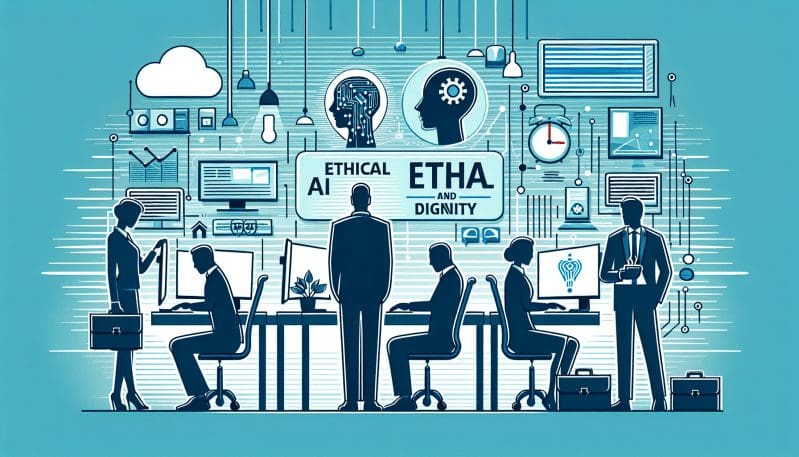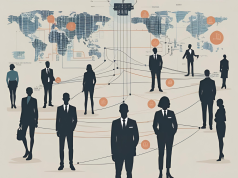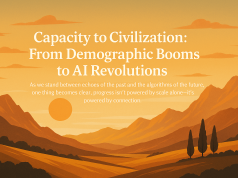In the labyrinth of modern business technology, the advent of artificial intelligence (AI) in the workplace looms like a new frontier. It promises efficiency, precision, and transformative power to reshape industries. But as our tools become more intelligent, the ethical landscape becomes more complex. The Work Times, akin to esteemed publications such as the Washington Post, The New Yorker, and The New York Times, is committed to unraveling these complexities. We invite our discerning readership to delve into the profound ethical implications of the AI revolution with a focus on the worker and the workplace.
As AI systems take on tasks ranging from mundane data entry to complex decision-making, the discourse around AI employment centers on a pivotal tension: the balance between the pursuit of efficiency and the preservation of human dignity. This conversation is not merely academic; it has tangible implications for millions of workers worldwide.
One of the most pressing concerns is job displacement. As algorithms become capable of performing tasks previously done by humans, the specter of unemployment looms large. But there is another narrative, one of augmentation rather than replacement. AI can empower workers, freeing them from repetitive tasks and enabling them to focus on creative and strategic endeavors. The question then becomes: How do we steer this ship towards augmentation instead of displacement?
Moreover, efficiency must not come at the cost of eroding employee privacy or autonomy. AI in the workplace often requires the collection and analysis of vast amounts of employee data. Here, we must tread carefully, ensuring that the pursuit of productivity does not lead to a panopticon of surveillance, stripping workers of their privacy and sense of agency.
To navigate these challenges, the role of policy makers is crucial. Regulations must evolve with the technology, setting boundaries to prevent misuse and abuse. Companies, for their part, must shoulder corporate responsibility, establishing ethical guidelines for AI implementation that prioritize the welfare of their workforce.
Public awareness and dialogue are the bedrock of change. As consumers and citizens, our collective voice can shape the trajectory of AI in the workplace. We must demand transparency, hold corporations accountable, and advocate for policies that safeguard workers’ rights in the face of automation.
The work ahead is both daunting and exhilarating. Real-world scenarios—such as AI in recruitment, performance assessment, and even predictive analytics for employee health and well-being—present rich ground for discussion. Through examining these cases, we can propose frameworks for ethical AI practices that resonate with the human spirit.
Let us envision and strive for a future where AI in the workplace is not a threat but a collaborator in the human quest for fulfillment and purpose. Businesses that champion this vision will not only thrive but will also set a moral benchmark for the AI-integrated world to come. At The Work Times, we are committed to fostering these conversations and illuminating the path for businesses to follow—an odyssey towards an ethical partnership between human and artificial intelligence.



























